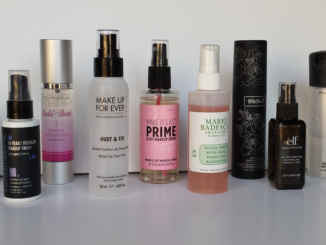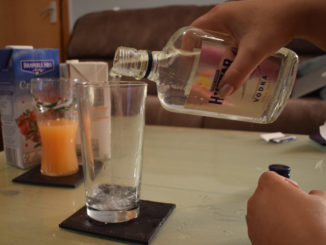
[dropcap]A[/dropcap]n overwhelming amount of students in DCU (94 per cent) voted for single-use plastics to be eradicated. This means that by 2020 all plastics will be gradually phased out, making DCU the first university to become plastic free.
DCU will lead the way for other universities to follow. Most importantly, however, what can each individual person do in their own daily life to implement small positive changes?
There are many simple changes everyone can do no matter where you go. Invest in a reusable water bottle instead of buying a bottle of water every dayay. There are many places dotted around campus where students can refill their water bottles. The advantages? You save money on water and reduce the amount of plastic used. Penney’s sell water bottles for a very affordable price which can hold up to one litre of water.
The same goes for coffee cups. There’s even a 20 per cent discount in Starbucks if you present your own reusable coffee cup. Keep Cups are also sold in DCU’s student union for €10.
Avoid using plastic straws, whether this is at a restaurant or a house party, drink from the cup. It’s that simple. Always bring your own bag when you go shopping. Currently, the plastic bag levy is 22 cent in the Republic of Ireland, however, it is only 5p in Northern Ireland. Before this levy was introduced, Ireland used 1.2bn plastic bags every year which has reduced by 95 per cent after it was implemented.
Lidl recently announced that they are minimising the use of packaging by introducing loose fruit and veg which will have a massive impact as there are currently 150 lidl stores in ireland, which is expanding to 200 in the near future. This comes after Lidl caused outrage for selling peeled onions in plastic wrappers in early 2018, therefore it’s clear that the general public is informed and monitoring large supermarkets.
Encourage family members at home to do these same steps and even more as parents have control over what they buy. Try to buy milk in cardboard containers instead of plastic and have a compost heap to reduce food waste. There’s less garbage in your bin, the kitchen smells better and you save money especially if you pay for rubbish bins.
Microbeads in face cleansers have been banned as there are many natural alternatives available such as salt cleansers. Microbeads are manufactured plastic particles used in cleansers that cannot degrade over time and are toxic to marine life as they slip through water treatment plants and end up in rivers, lakes and oceans. Around 35,000 tonnes of plastic that ends up in oceans in from cosmetics alone, however, microplastics are still used in lipstick, toothpaste and sun creams. Always double check the contents of cosmetic products to make sure you are doing your best in minimising the level of pollution.
If everyone did these small steps every day, the level of plastic used in Ireland would drop massively and we can lead the way for other countries.
Roisin Maguire
Image Credit



